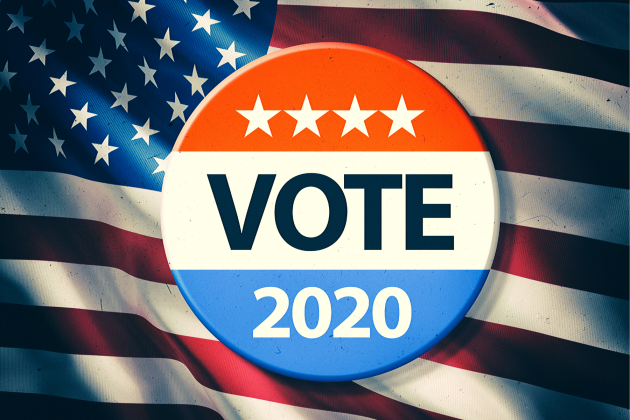Four months after former New York Mayor Michael Bloomberg entered the 2020 presidential race, he and former Vice President Joe Biden are locked in a war of words — one coming seemingly every 15 minutes over the airwaves and the other using a resounding victory in South Carolina to amplify his message.
Bloomberg has waged a virtually around-the-clock ad campaign on television in the Sooner state over the past three months, spending nearly $3 million of the $3.2 million estimated to have been spent by all the Democratic candidates. Meanwhile, Biden and his surrogates wasted little time turning up the volume after his Saturday victory. An Oklahoma poll that last week found Biden and Bloomberg in a statistical tie for the 42 Oklahoma delegates at stake in Tuesday’s primary is “likely changing by the day,” according to Bill Shapard, founder of the Sooner Poll.
Surprisingly, Senator Bernie Sanders (I-Vt.), who defeated eventual Democratic nominee Hillary Clinton in 2016, finished a distant third in the poll with 12.8%. Biden led the poll with 21.2% of Oklahomans polled saying they would vote for him if the election were today, while 19.8% of those polled selected Bloomberg. However, the margin of error for the poll was 4.84 per- cent, meaning the two candidates are essentially tied among Oklahoma’s likely Super Tuesday voters.
The biggest driver of Biden’s success in South Carolina was his strong support in the black community; nearly two-thirds of the voters in the South Carolina Democratic primary were black. A higher-than-expected black turnout on Tuesday in Oklahoma could boost Biden’s share of votes, according to Keith Gaddie, a political author and professor at the University of Oklahoma. “Bloomberg is defined, and has a body of experience in a way that is different from Joe Biden,” said Keith Gaddie, political author and professor at the University of Oklahoma.
“If everybody is just running around looking for a sensible male, you know, these are the leading candidates right now.” But the decisions of Buttigieg and Tom Steyer, both seen as moderates, to drop out of the race could boost both Biden and Bloomberg. Steyer supporters would likely move to Bloomberg, the only other billionaire left in the Democratic race, while Buttigieg’s supporters would probably shift to Biden, Gaddie said.
Outside of black voters, Biden’s largest area of support in Oklahoma is young voters, in contrast to national polling that shows young voters supporting Sanders. Biden received support from 43.8% of voters under 35 in the most recent SoonerPoll. In second place among young voters was Sanders, who trailed by more than 22 points. Bloomberg, on the other hand, enjoys a significant lead among women, capturing support from over 23% of women polled, compared to Biden’s 15%.
Women may well decide which candidate receives the most delegates on Tuesday, assuming Bernie Sanders remains in a distant third. A large portion of the male vote is eaten up by Sanders, who captured 22% of the male vote, but only 5.7% of women, leaving more of the female vote up for grabs by the two frontrunners.
Additionally, more women than men signaled that they are still making up their minds. If Bloomberg’s lead among women continues into Tuesday, women voters may help push him towards a victory in Oklahoma––provided Biden doesn’t receive a significant bump in the polls from his South Carolina win. While it seems like the two will face off in what could be a close race, there is a chance for other candidates to pick up votes from undecided Oklahomans.
The SoonerPoll showed that 19.3% of poll participants remained undecided, and 47.8% of those polled said they were likely to change their mind on which candidate to vote for, leaving plenty of room for surprises come Tuesday. Sanders, who won Oklahoma in the 2016 Democratic primary, has lost traction in Oklahoma over the last four years. Gaddie said this is because there are more than two Democrats on the primary ballot––unlike in 2016, when the only options were Sanders and Hillary Clinton. The Oklahoma primary election is set for March 3, along with 13 other states voting on Super Tuesday.
Gaylord News is a reporting project of the Gaylord College of Journalism and Mass Communication at the University of Oklahoma.


